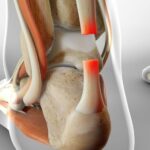Congenital heart disease affects many lives from birth. Cardiologists play a crucial role in managing and treating this condition. They work to identify and address heart defects early on. At places like the Florida Heart, vein, and Vascular Institute , their expertise helps guide patients through complex treatments. Understanding their role is vital for those dealing with congenital heart issues.
What is Congenital Heart Disease?
Congenital heart disease refers to heart defects present at birth. These defects can affect the heart’s structure and function. Some common types include holes in the heart, abnormal valves, and issues with the heart’s chambers. These conditions can range from simple issues requiring little treatment to complex problems needing surgery. The Centers for Disease Control and Prevention provides data on the prevalence and types of congenital heart defects.
The Role of Cardiologists
Cardiologists specialize in diagnosing and treating heart conditions. In congenital heart disease, their role begins right after birth—or even before, during pregnancy. They use various diagnostic tools such as echocardiograms and MRIs to assess the heart’s condition. Once they identify a defect, they plan the best course of action for treatment.
Treatment Options
Treatment for congenital heart disease varies based on the defect type and severity. Here are three common approaches:
- Medication: Helps manage symptoms and improve heart function.
- Surgery: Repairs heart defects and improves overall heart performance.
- Interventional procedures: Minimally invasive techniques like catheterization.
Each treatment plan is unique. Cardiologists work closely with patients and families to decide the best path forward.
Monitoring and Routine Care
After treatment, routine care is essential. Cardiologists monitor heart health to prevent complications. This ongoing care is critical in maintaining a good quality of life for patients. Regular check-ups and lifestyle adjustments play key roles in long-term health. The National Institutes of Health highlights the importance of follow-up care.
Technological Advances
Recent advancements in medical technology have improved the diagnosis and treatment of congenital heart disease. Innovations in imaging and surgical techniques make procedures safer and more effective. These advances allow cardiologists to offer better care and outcomes for their patients. The use of 3D printing for surgical planning and the development of artificial valves are just a few examples of how technology is transforming care.
Comparison of Treatment Options
| Treatment Approach | Benefits | Considerations |
|---|---|---|
| Medication | Non-invasive, Easy to administer | May require ongoing use, Side effects possible |
| Surgery | Permanent solution, Addresses severe defects | Invasive, Risk of complications |
| Interventional Procedures | Less invasive, Quicker recovery | May not be suitable for all defects, Requires specialized skills |
Conclusion
Cardiologists play a vital role in managing congenital heart disease from diagnosis to ongoing care. Their expertise and the advanced treatments they offer help many live healthier lives. Understanding their role and the available treatment options can empower those affected by congenital heart conditions. As medical technology continues to evolve, the future looks promising for patients with these heart defects. By working with their cardiologists, patients can navigate their health journey more effectively.











